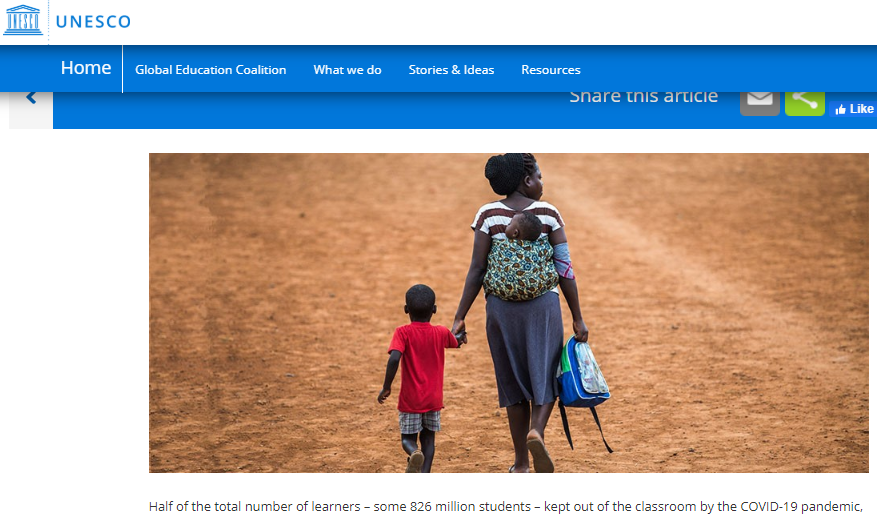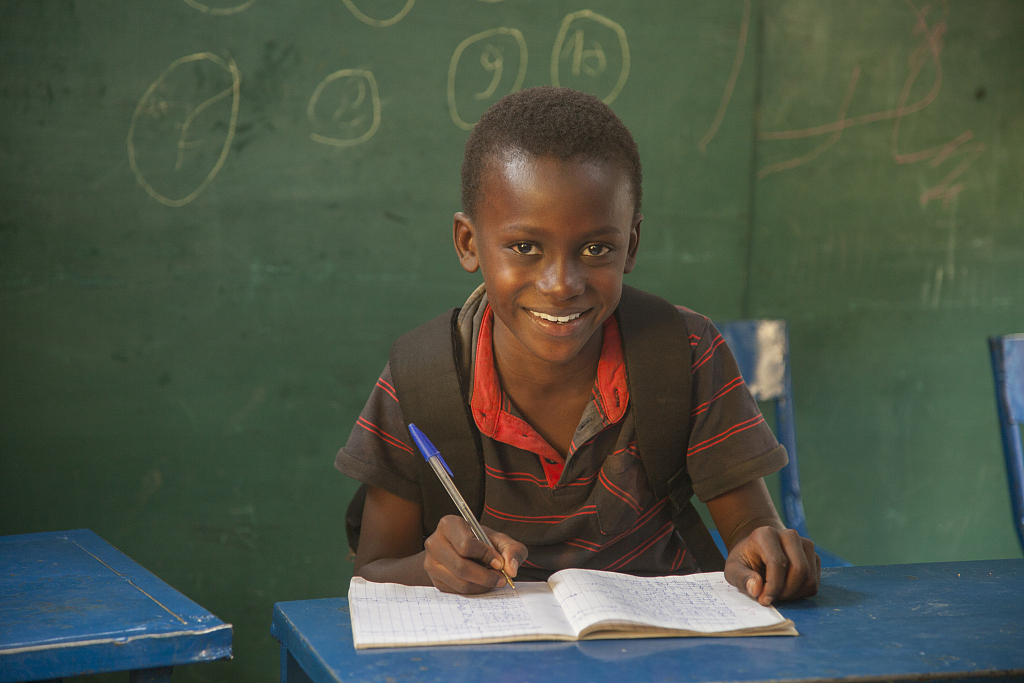Due to the COVID-19 pandemic, more than 90 percent of the world's learners, around 1.5 billion students, can't go to schools in 190 countries and regions, according to the United Nations Educational, Scientific, and Cultural Organization (UNESCO).
Online learning has become the main way to obtain knowledge and keep up with classes for students. However, it's not easy for some to access the internet and many can't afford to buy computers.
In sub-Saharan Africa, 89 percent of learners don't have access to household computers and 82 percent lack internet access.
These figures were compiled by the Teacher Task Force, an international alliance coordinated by UNESCO.

A screenshot of a UNESCO article about "Startling digital divides in distance learning emerge."
A screenshot of a UNESCO article about "Startling digital divides in distance learning emerge."
Inequality gap between students
"These inequalities are a real threat to learning continuity at a time of unprecedented educational disruption," said UNESCO Assistant Director-General for Education, Stefania Giannini.
The inequality gap between students in different financial situations, which has been present in education systems for a long time, is being exacerbated by the COVID-19 pandemic.
Underprivileged students, such as those in sub-Saharan Africa, are facing increased obstacles to achieving good grades as they have limited online resources during the pandemic.

A student in Africa. /VCG
A student in Africa. /VCG
Information and communication technology skills
Teachers in many countries are also being trained – albeit to different extents – to deliver distance education effectively, but those in low-income countries are having problems to learn information and communication technology (ICT) skills.
Across sub-Saharan Africa, just 64 percent of primary and 50 percent of secondary teachers have received minimum training, and this frequently does not include ICT, according to the UNESCO website. This so-called digital divide has raised people's concern.
Action has been taken to close the education gap. UNESCO held the fifth COVID-19 Educational Response Webinar on April 17 to share country experiences in distance education learning strategies.
Education plays an important role in social development. However, the COVID-19 pandemic is putting poor students at a disadvantage than their wealthier peers.
(Cover image by Jia Jieqiong)